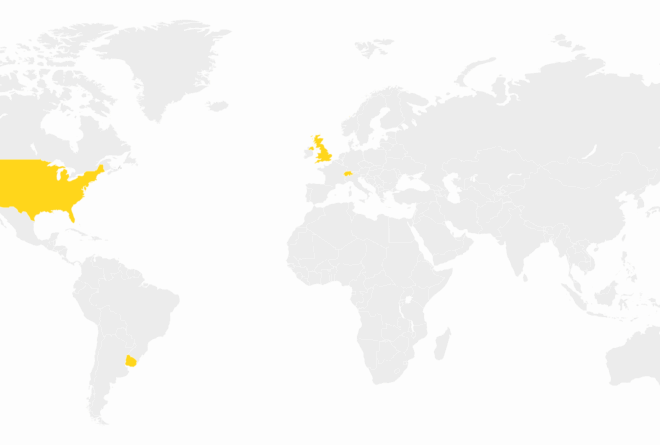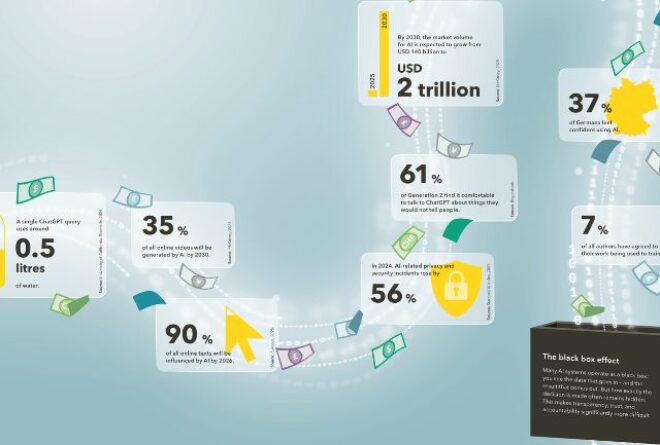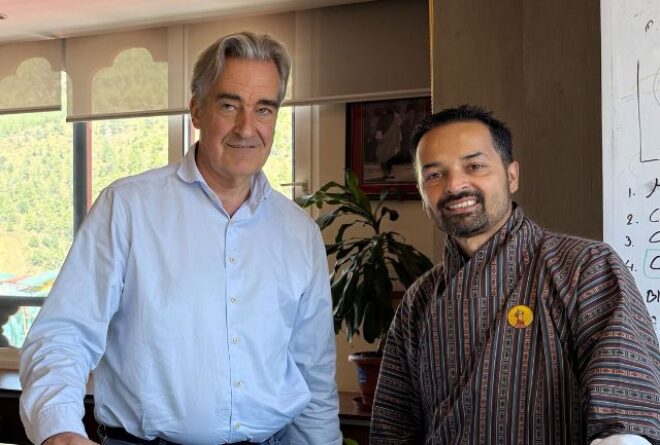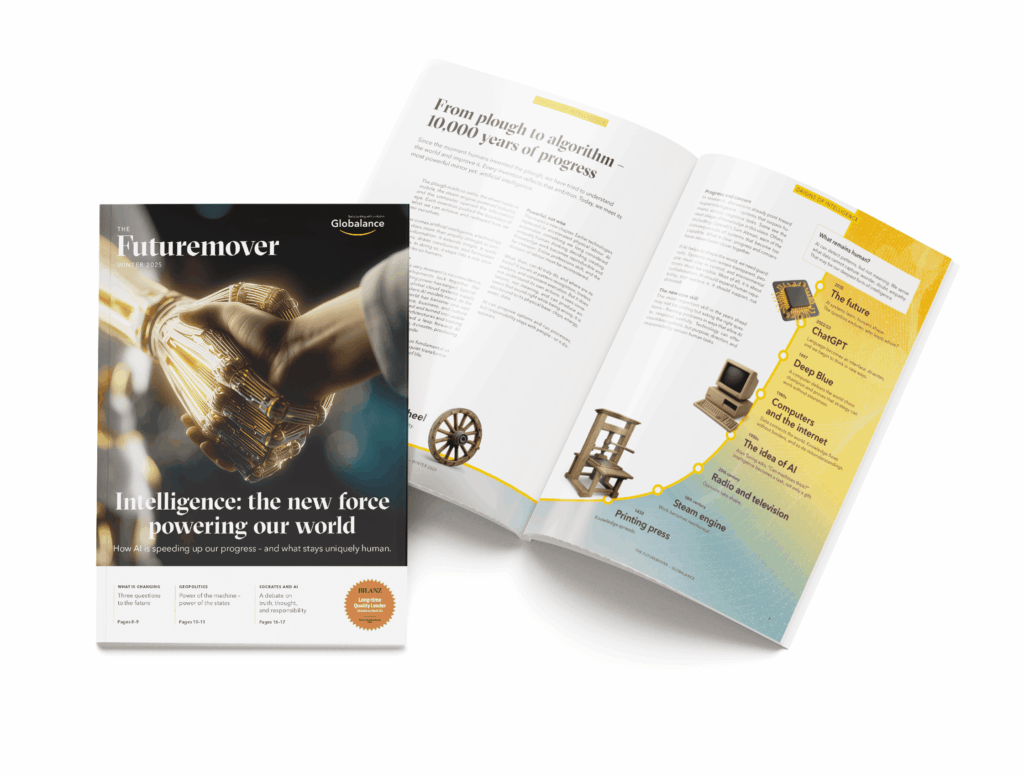News & Trends
Chocolate from a fermentation tank
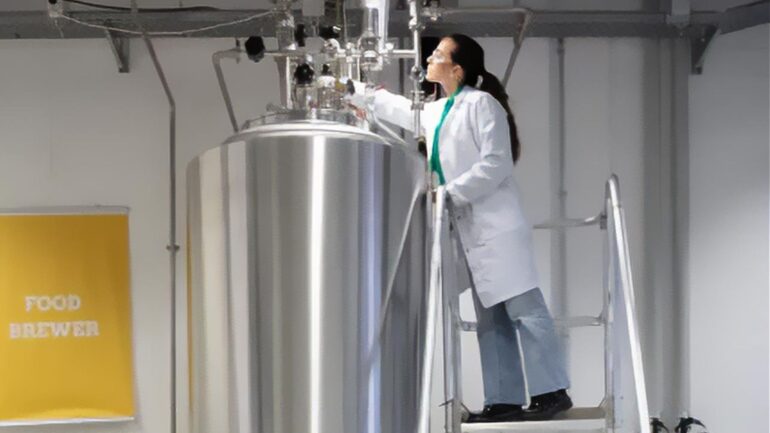
Cocoa from the lab tastes the same as cocoa from the field, but uses less water and land resources. How start-ups are stirring up the global food market – and highlighting opportunities for greener and more socially equitable food production.
Anyone entering the Food Brewer production hall at the Horgen Labs innovation campus on Lake Zurich feels it right away: the pioneering spirit. Young people with big visions are researching and experimenting here. In white coats, they busy themselves with pipettes and test tubes in the lab. Even if there are no tell-tale signs: cocoa and coffee are being produced here – in the lab instead of in the fields of Africa, Asia or South America. The principle behind the cell cultivation is simple: extract a cell from a bean, feed it and wait for it to propagate. In the tanks and centrifuges at Food Brewer, a brown, pulpy mass forms, which will later be dried and ground into brown cocoa or coffee powder. And sure enough: Food Brewer chocolate taste like – chocolate.
Food tech with big visions
Food Brewer produces the cocoa powder or couverture – the start-up then leaves the development and marketing of the lab chocolate to chocolatiers such as Felchlin or Lindt. There is both great interest and caution to be sensed within the industry, says CEO Christian Schaub: “Many chocolate manufacturers don’t yet know how they should position themselves.”
The world market prices for conventional cocoa have skyrocketed in recent years. The reason: heat, drought, climate change. Monocultures, water scarcity, pesticides, as well as dubious production conditions and supply chains are making cocoa and coffee into problematic luxury foods. At the same time, global demand is increasing dramatically. Schaub, who had previously worked for many years as an ETH engineer in the biotechnology field and already founded a number of start-ups, went looking for a solution.
A future made from cell cultures
In 2021, he founded Food Brewer. Together with breweries and scientists, he developed not one, but two alternatives to conventional cocoa. A plant-based alternative, produced by fermenting and roasting the leftovers from conventional cocoa production. And the cell culture technology. Today, Food Brewer employs 20 people. The approval process in the USA is underway. Going forward, Schaub is keen to manufacture oils, nuts and other foods in the lab too.
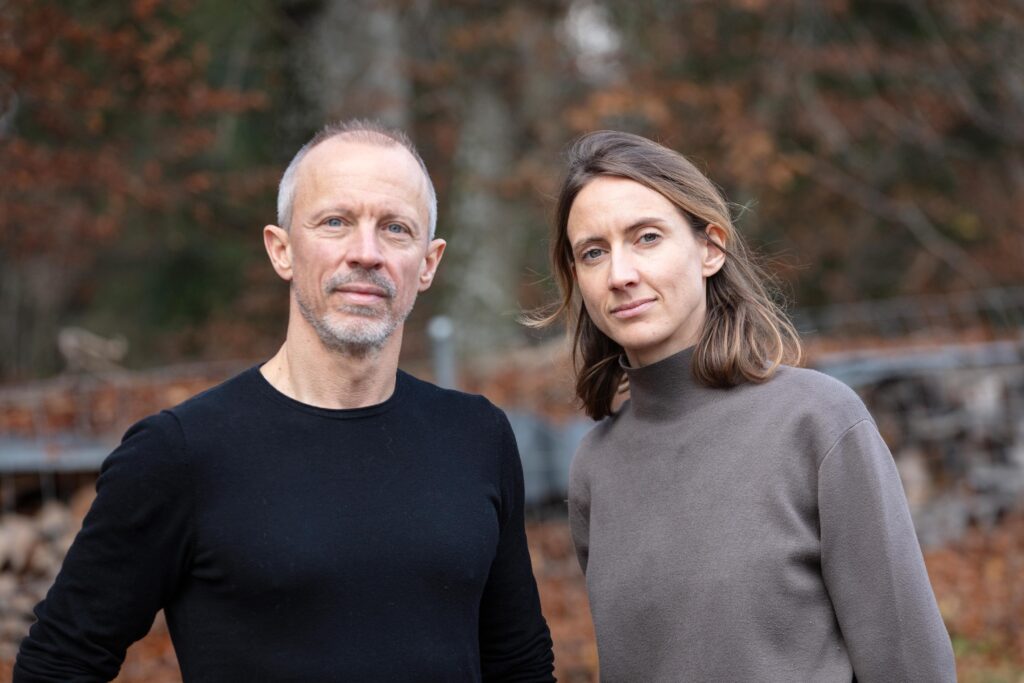
A modern lab on the shores of Lake Zurich instead of a plantation overseas: In our interview, Christian Staub, CEO of Food Brewer, explains how his start-up is revolutionizing the production of cocoa and coffee using cell cultures.
New “old” food thanks to new technologies
Food Brewer is virtually alone in producing foods from cultivated cell cultures – only in Israel and the USA are other start-ups following suit. More common are attempts to manufacture foods using precision fermentation. This involves using microbial hosts such as yeast as “cell factories” to manufacture specific ingredients which are later extracted. According to Schaub, however, this process is complex and expensive. “As a result, I hit upon the idea that it’s cheaper to acquire the cells directly from nature and then use them as a whole.” He sees the potential for precision fermentation more in the area of highly specialized proteins and lipids, which could offer high added value through the selection of fungi and cells, especially in the pharmaceutical sector. This is because with customized proteins, foods and dietary supplements can be produced with individually assembled nutrients.
Reclaiming ecosystems with novel food
While Food Brewer manufactures luxury foods, novel food – with new types of foodstuffs made from cell cultures and fermentation – could change food production worldwide. These foods have a small CO2 footprint and require less water and land. Using crop lands less intensively, will allow ecosystems to recover and entire regions to be restored to their original natural state. Novel food is not affected by contaminated soils, needs no pesticides, leaves behind no waste, and does not need to be transported over long distances. It also obviates issues such as child labour, low wages and high distributor profits. As production is not tied to local conditions, these foods can be produced anywhere and contribute to global food security.
One question remains: how will the increasing laboratory production affect farming families in traditional growing regions?
Progress through precision fermentation

Imagindairy – Israel
Plant-based milk proteins
Since 2020, start-up Imagindairy has been researching how to produce sustainable, non-animal milk proteins through precision fermentation. So far, consumers have given this solution a somewhat lukewarm reception.
Calysta – USA
Vegan proteins for animals
Precision fermentation is also being used to manufacture animal feed proteins. Leading in this field is US pioneer Calysta, which is manufacturing proteins from natural gas and microorganisms with its FeedKind product.
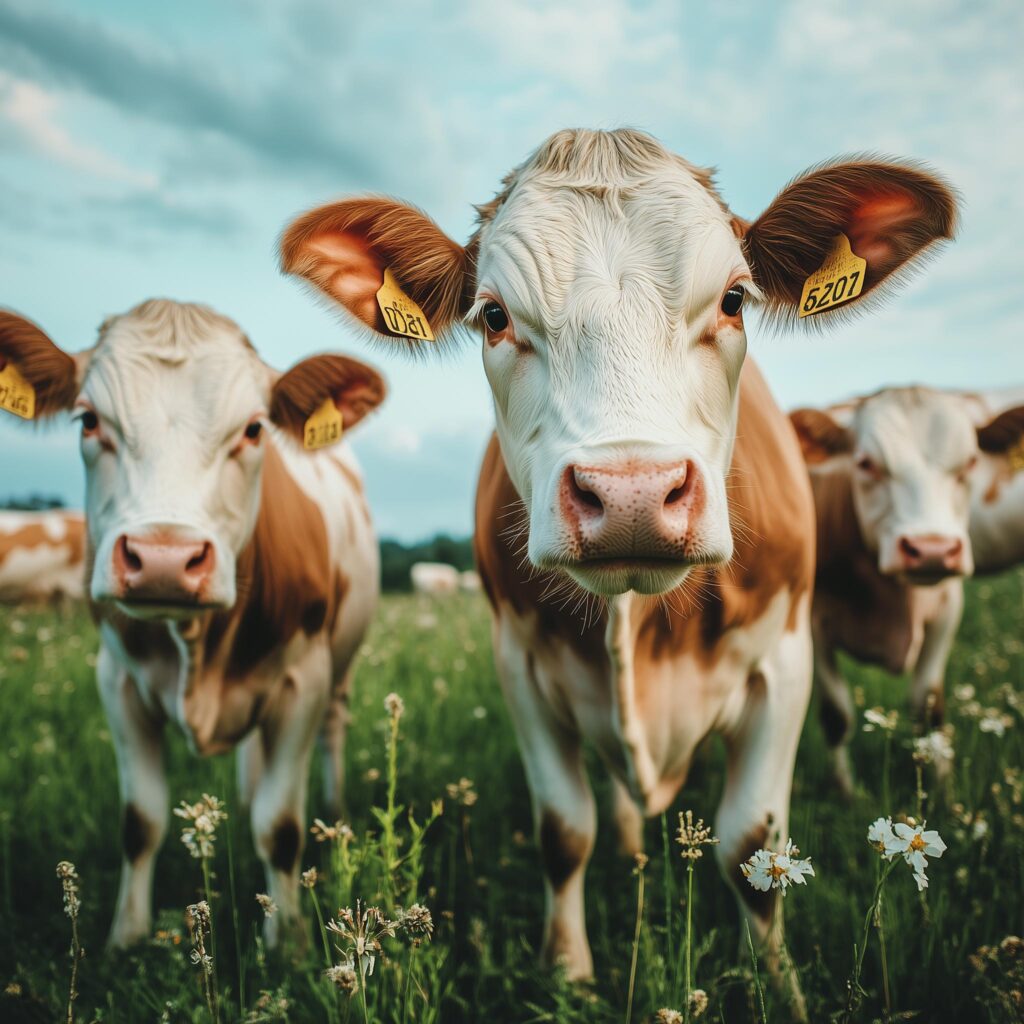
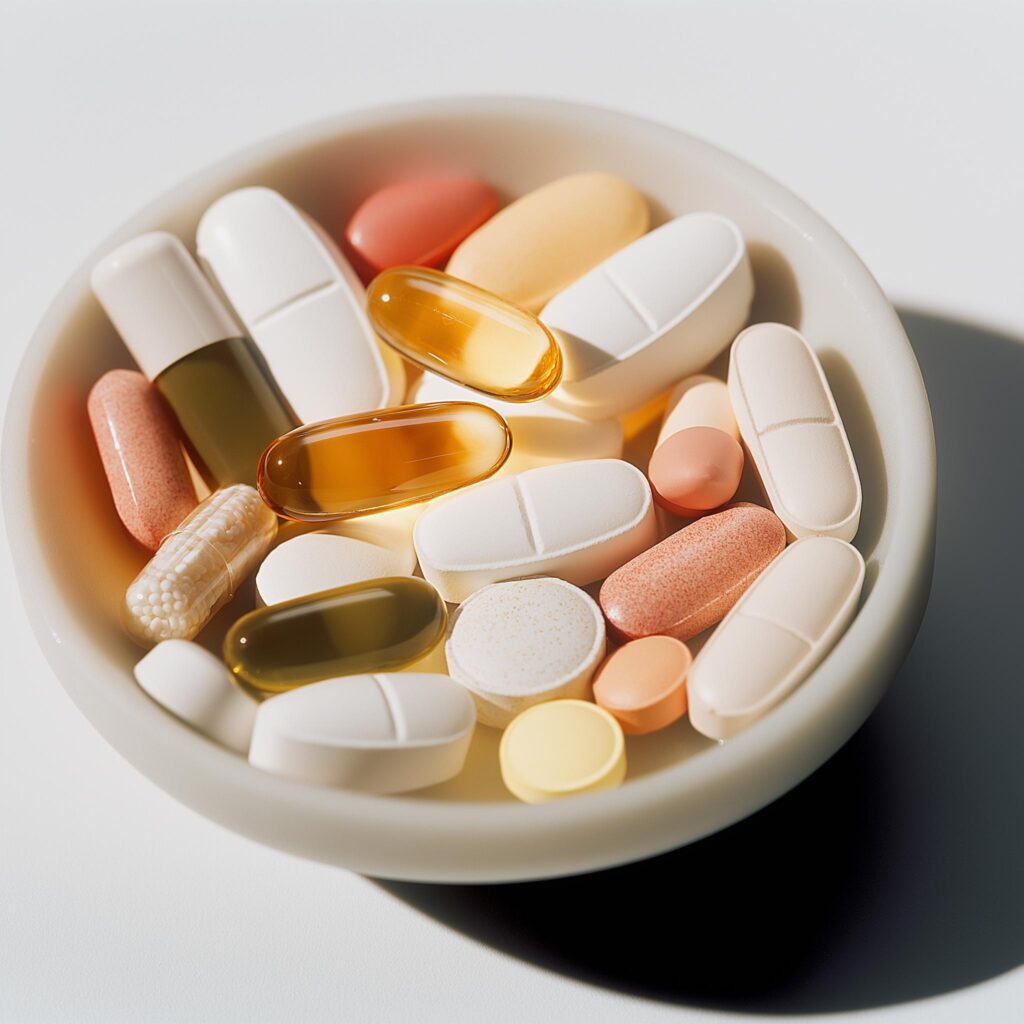
DMC Biotechnologies – USA
Sustainable cosmetics
US company DMC Biotechnologies uses precision fermentation to manufacture sustainable, bio-based products such as dietary supplements or cosmetic ingredients.
NoPalm Ingredients – USA
Palm-oil-free oil
Palm oil is in almost everything – from shampoo to sandwich spread. As a result, since 2021 biotech company NoPalm Ingredients has been using yeast-based precision fermentation to manufacture a palm oil alternative.
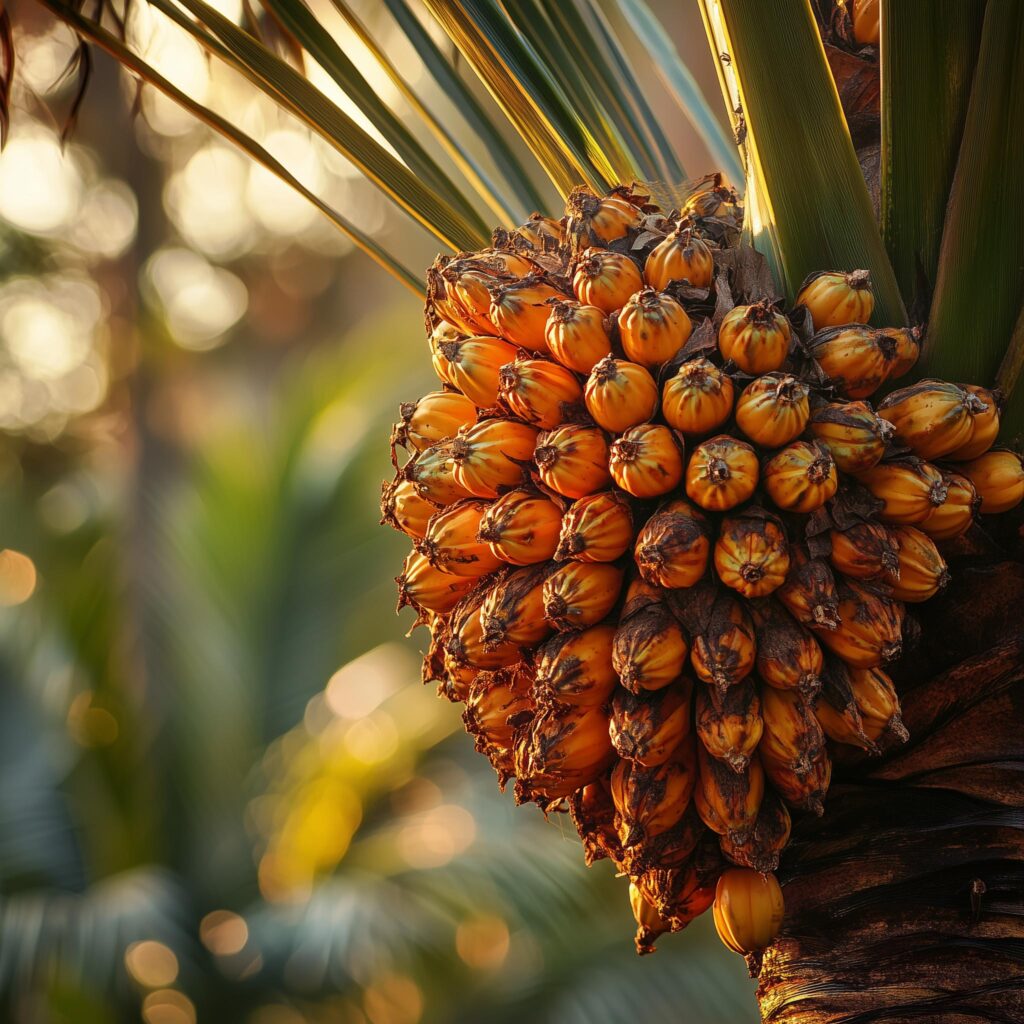
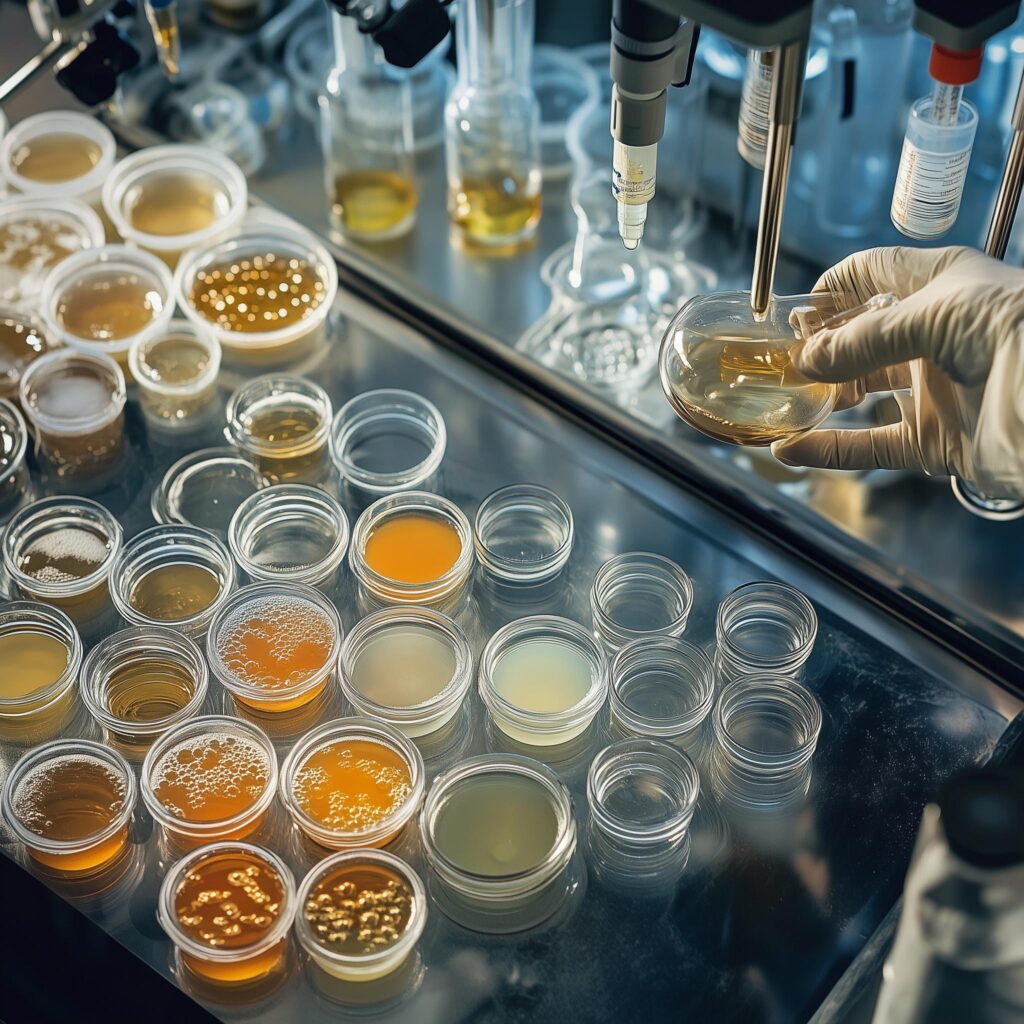
21ST.BIO – Denmark
Pharmaceuticals
21st.Bio uses precision fermentation to produce manufactured proteins and peptides, which are used in food and industrial production, among other applications. 21st.Bio also offers its scalable technology to other companies.
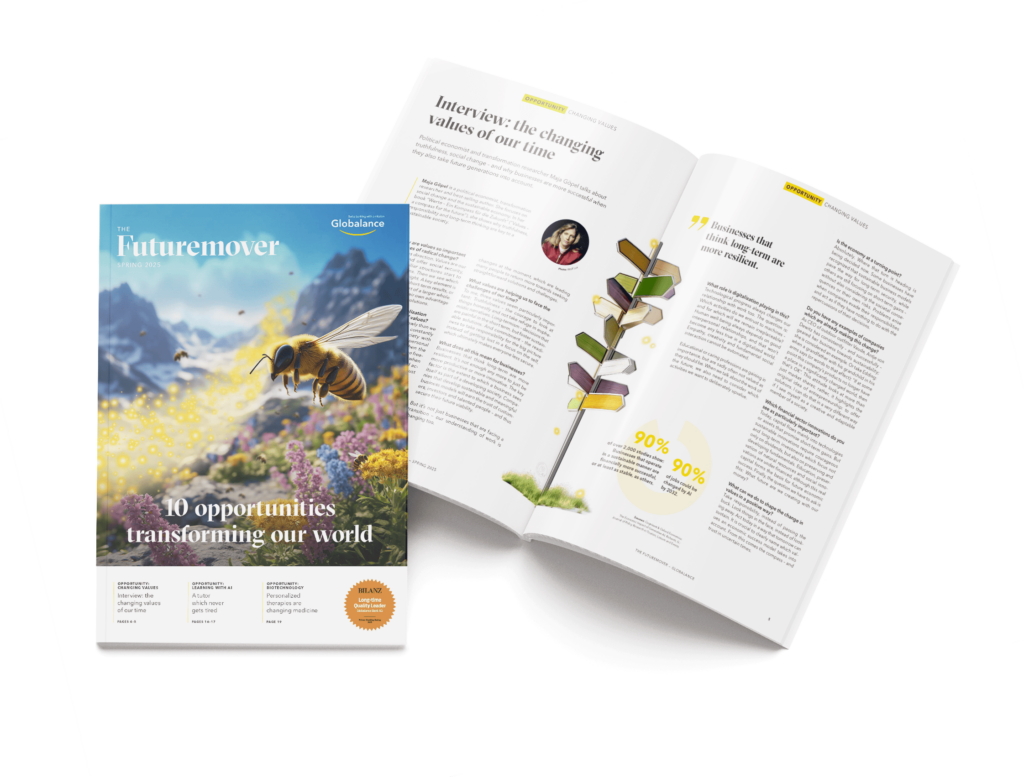
Discover the entire issue
Read more articles from our current issue: ‘10 opportunities
transforming our world’.
Be part of the solution and stay informed with the Futuremover.
Subscribe now and shape the future!
Magazin abonnieren EN
"*" indicates required fields




